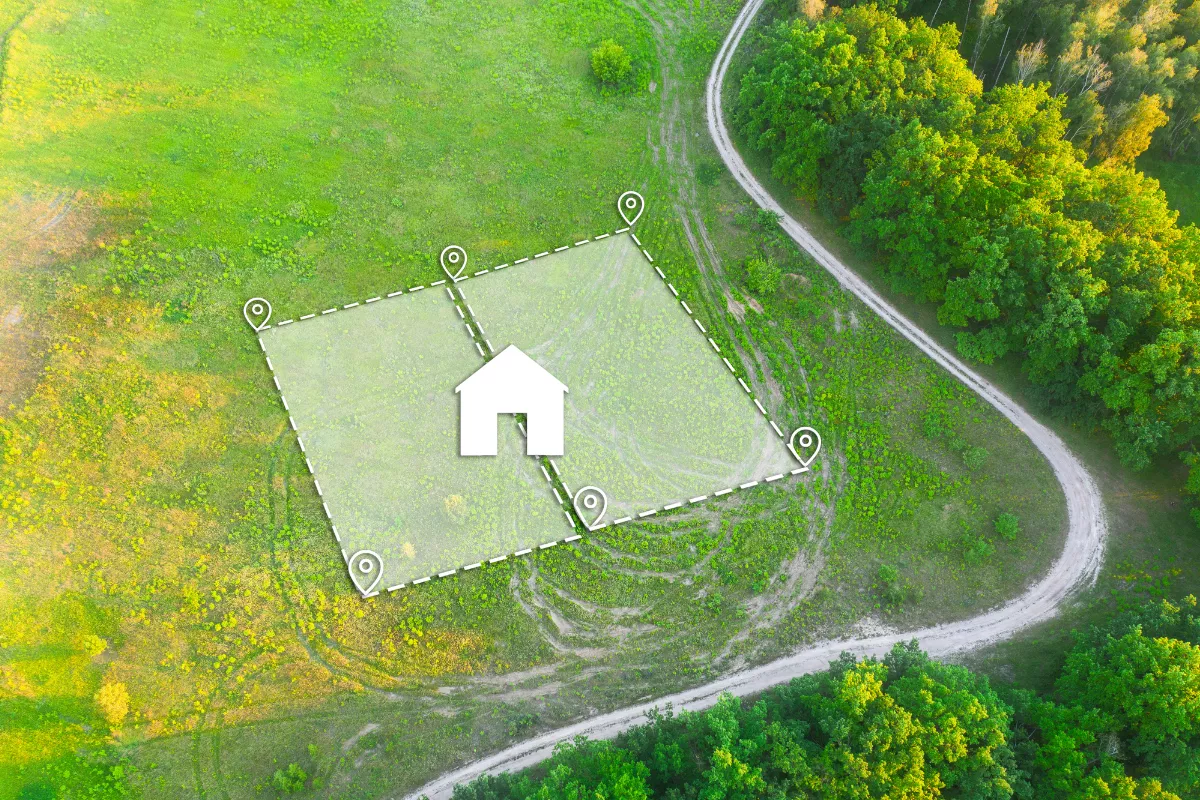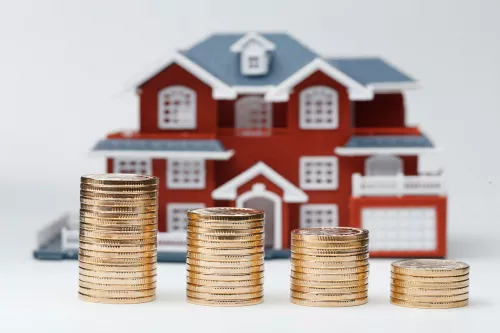When it comes to real estate, the value of land is a topic that often stirs interest and curiosity. Whether you're considering selling, buying, or simply assessing your assets, understanding the worth of your land is crucial. Here we aim to explore various facets of land valuation, addressing common questions such as "How much is my land worth?", "How to evaluate the value of a piece of land?", and more.
We'll also delve into what determines a property's value and discuss the investment merits of land vs. houses. Let's embark on this journey to demystify the principles that make land valuable.
How Much Is My Land Worth?
To ascertain your land's worth, it's crucial to examine factors such as its location, size, zoning laws, and market demand, which can cause its value to vary significantly. Urban land often fetches higher prices than rural counterparts, driven by stronger demand and the potential for development.
While online valuation tools, comparative market analyses by real estate experts, and professional assessments can offer preliminary estimates, the real test of a property's value is what a buyer is willing to pay.
Despite the existence of various valuation methods, the unpredictable nature of market dynamics means that neither expert evaluations nor sophisticated tools can precisely determine the ultimate sale price or the exact duration it will take to sell.
Evaluating Land Value
Evaluating the value of land involves a comprehensive analysis of various elements:
Location
The most influential factor. Properties in developed or rapidly developing areas, with access to amenities and infrastructure, are typically valued higher.
Size and Shape
Land size matters. With the U.S. Census Bureau noting the average residential lot size as roughly one-fifth of an acre, larger acreages can fetch higher prices. Such expanses appeal not just to those wishing to build homes but also to developers eyeing larger projects or commercial ventures. Even those seeking a rural lifestyle may value your land more.
Zoning and Use
Land designated for commercial use might be more valuable than residential or agricultural land, depending on the area.
Utilities
Listings with ready access to utilities like electricity and water are attractive, especially for those planning to construct homes. For lands aimed at recreational use, minimal utilities might suffice, potentially saving costs on unnecessary enhancements.
Topography and Usability
Desirable locations or unique features like views, open spaces for play, and natural settings can elevate your land's appeal and value, especially if it's not near prominent attractions.
Road Access
Easy access via a well-connected road or driveway can significantly increase land value. Even simple improvements like gravel parking can boost desirability.
Surrounding Area
The locale plays a crucial role. The right setting can vary widely in appeal, from oceanfront aspirations to spacious inland retreats. Pricing competitively and targeting the appropriate audience are key.
Market Trends
Real estate market conditions and trends in the area can impact land values.
Determining Land Value
Knowing the value of a piece of land is a multifaceted process that requires a variety of factors to be considered in order to provide an accurate estimate. Here's a deeper dive into the steps you can take to assess the value of your land:
Research Recent Sales
Comparable Sales Analysis
Start by gathering data on recent land sales in your vicinity. Look for properties with similar characteristics such as size, location, and usage. This method, often referred to as "comps," helps establish a baseline for pricing.
Adjustments for Differences
No two parcels of land are exactly alike. You may need to adjust the comparables for differences such as land topography, accessibility, and any available utilities or infrastructure. For instance, a parcel with road access and utilities may command a higher price than a landlocked or undeveloped plot.
Timeframe and Trends
Focus on sales within the last 6-12 months to ensure the data reflects current market conditions. Also, consider any emerging trends, such as increased demand for land in your area, which might influence value.
Consider the Current Market
Market Dynamics
Understand the broader real estate market trends in your area. Are people moving in, suggesting a seller's market with potentially higher land values? Or is the area experiencing a downturn, indicating a buyer's market where prices may be lower?
Economic Indicators
Economic factors such as interest rates, employment rates, and overall economic growth can influence real estate markets. For instance, low-interest rates might encourage more buyers, potentially driving up land prices.
Local Development Plans
Keep an eye on local government and private sector development plans that could affect land values. Upcoming infrastructure projects or new community developments can significantly increase the desirability and value of nearby land.
Professional Valuation
Hiring an Appraiser
For the most accurate assessment, consider hiring a professional land appraiser. They bring expertise in evaluating all factors affecting land value and can provide a detailed, objective appraisal report.
Appraisal Methods
Appraisers may use several methods to determine land value, including the sales comparison approach, income approach (for income-producing lands), and the cost approach (considering the land's value as if it were vacant).
Report Insights
A professional appraisal report will not only give you a valuation figure but also offer insights into how the value was determined, including adjustments made for differences between your land and comparable sales, market trends, and other relevant factors.
Land vs. House Investment
Deciding between investing in land or a house hinges on factors like investment goals, risk tolerance, and market conditions. Land offers potential for significant appreciation, especially in growing areas, and lower initial costs, but lacks immediate income and can be challenging to develop due to regulations and marketability concerns.
On the other hand, houses can provide steady rental income and tax benefits, with more accessible financing options, but come with higher initial and ongoing maintenance costs, and the value can be more susceptible to market fluctuations.
Ultimately, the choice should align with your financial strategy, considering the long-term potential of land against the immediate income and personal use benefits of houses, always keeping in mind the local market trends and your own investment horizon and risk appetite.
What Makes Land Valuable?
The value of land is influenced by a multitude of factors, ranging from its geographical location to the characteristics and potential uses of the land. Understanding these elements can provide insights into what makes a piece of land valuable.
Location
The adage "location, location, location" holds true in real estate. Proximity to amenities, cities, and natural attractions can significantly enhance land value. Desirable areas with high demand but limited supply often command higher prices.
Improvements
Land improvements such as landscaping, grading, and the addition of structures can increase value. These enhancements make the land more usable or attractive to potential buyers.
Infrastructure Development
Access to developed infrastructure like roads, water supply, sewage, and electrical grids adds substantial value to land. It indicates the land's readiness for construction and development, reducing future costs for these utilities.
Present and Future Land Use
The current zoning and potential for rezoning can affect land value. Land designated for commercial or residential development tends to be more valuable than land intended for agriculture or conservation due to its higher income-generating potential.
Usable Land
The topography and usability of land play crucial roles in its valuation. Flat, clear land without significant environmental constraints is more desirable for construction and agriculture, making it more valuable.
Accessibility to Economic Activities
Land near economic hubs, industrial areas, or within a growing economy can be more valuable due to the potential for commercial development and job opportunities.
Buying Land is Easy
Ease of purchase, including clear legal titles and straightforward transactions, can increase land value. Land with complicated ownership history or legal disputes is less desirable.
Land and Property Records
Well-documented land and property records ensure transparency and security in land transactions, contributing to land value. Clear records simplify the buying process and reduce risks associated with land ownership.
Land Use
The permitted and potential uses of land, as defined by local zoning laws, significantly impact its value. Land that can be used for multiple purposes, such as mixed-use developments, often has higher value.
Physical Attributes
Natural features like bodies of water, forests, and mineral resources can increase land value. These attributes can provide aesthetic value, recreational opportunities, or economic benefits.
Transport
Good transport links, including proximity to highways, airports, and public transit, can significantly increase land value by improving accessibility and convenience.
Real Estate Market Trends
The overall health of the real estate market influences land value. In a booming market, land values tend to increase as demand for property grows.
Timber Characteristics
For rural or undeveloped land, the quality and quantity of timber can add value, especially if the land is suitable for logging or sustainable forestry practices.
Utilities
Access to utilities such as electricity, gas, water, and internet services is a significant factor in land valuation. Land that already has these services is more attractive to buyers looking to develop the property immediately.
People also ask
Can the value of land decrease?
Land values can fall due to a variety of factors, including zoning changes, economic downturns, and natural disasters. Properties located in areas prone to environmental hazards, such as floods, mudslides, or earthquakes, may lose their appeal to potential buyers, resulting in a decrease in value due to the associated risks.
Which type of land appreciates the most?
In general, commercial land has the highest potential for appreciation. This is because commercially zoned land is constrained by where local governments permit commercial development. It is also possible to significantly increase the value of a property by rezoning it for commercial purposes.
Is buying land a good investment?
Buying land can be a good investment if you choose the right location and have a long-term perspective. It's less susceptible to market fluctuations than properties with structures and can appreciate significantly over time.

 Marcio Vasconcelos
Marcio Vasconcelos





